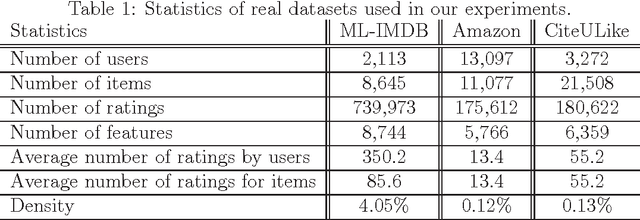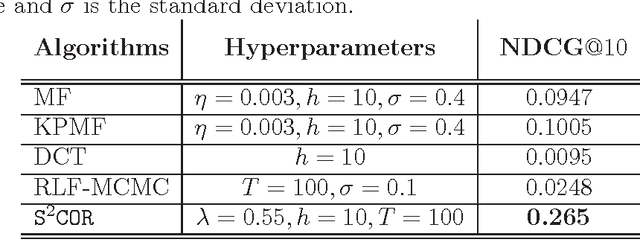Semi-supervised Collaborative Ranking with Push at Top
Paper and Code
Nov 17, 2015



Existing collaborative ranking based recommender systems tend to perform best when there is enough observed ratings for each user and the observation is made completely at random. Under this setting recommender systems can properly suggest a list of recommendations according to the user interests. However, when the observed ratings are extremely sparse (e.g. in the case of cold-start users where no rating data is available), and are not sampled uniformly at random, existing ranking methods fail to effectively leverage side information to transduct the knowledge from existing ratings to unobserved ones. We propose a semi-supervised collaborative ranking model, dubbed \texttt{S$^2$COR}, to improve the quality of cold-start recommendation. \texttt{S$^2$COR} mitigates the sparsity issue by leveraging side information about both observed and missing ratings by collaboratively learning the ranking model. This enables it to deal with the case of missing data not at random, but to also effectively incorporate the available side information in transduction. We experimentally evaluated our proposed algorithm on a number of challenging real-world datasets and compared against state-of-the-art models for cold-start recommendation. We report significantly higher quality recommendations with our algorithm compared to the state-of-the-art.
 Add to Chrome
Add to Chrome Add to Firefox
Add to Firefox Add to Edge
Add to Edge